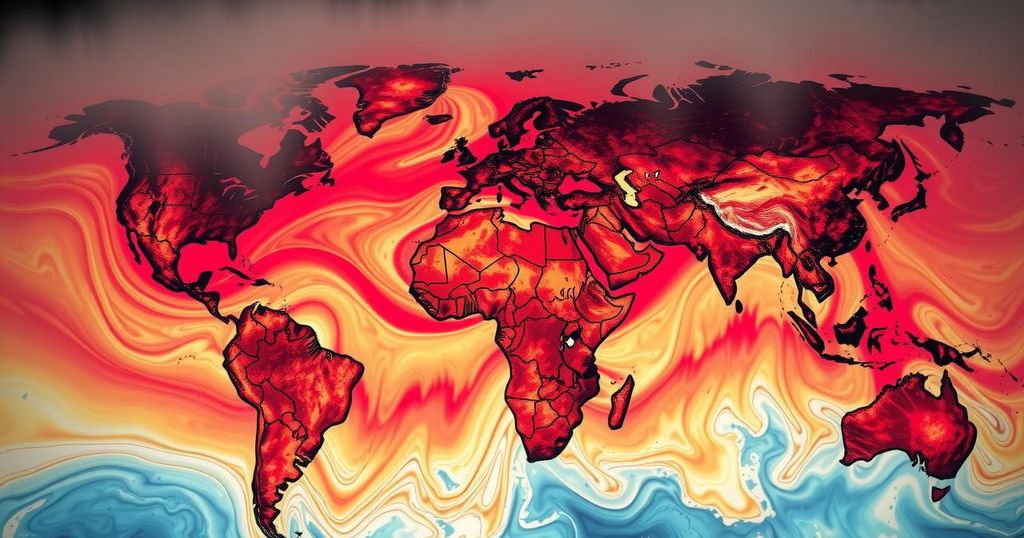In 2024, human-caused climate change resulted in an average of 41 additional days of dangerous heat globally. This year marked unprecedented weather extremes, with severe repercussions for millions, especially in less developed countries. Researchers emphasize the urgency for climate action as the planet nears critical warming thresholds, attributing many extreme weather events directly to climate change, indicating a pressing need for adaptive measures globally.
In 2024, climate change resulted in an alarming increase of 41 extra days of dangerously high temperatures worldwide, as reported by climate researchers. This year has recorded unprecedented weather patterns, marking it as potentially the hottest year on record. Expert analysis from World Weather Attribution and Climate Central indicates that human-induced climate change has intensified adverse weather events globally, leading to dire consequences for millions. Extreme heat disproportionately affects vulnerable populations, particularly in underdeveloped regions, emphasizing an urgent need for adaptation and mitigation strategies as the planet approaches critical warming thresholds.
Instances of extreme heat have been documented worldwide, from the sweltering conditions in California and Mexico to troubling temperatures in West Africa and Southern Europe, where sites like the Acropolis had to close their doors as a health precaution. An influx of weather patterns, including a substantial heat wave and continuous heat streaks, further exemplifies the startling climate crisis. Researchers assert that most extreme weather events have strong links to climate change, underlining the increasingly lethal nature of heat waves and their related health risks.
Despite a natural climatic event, such as the El Niño phenomena, influencing weather patterns, the prevailing consensus is that climate change has played an overwhelmingly larger role in the severe weather conditions recorded in 2024. The report meticulously explored 29 extreme weather events this year that resulted in a combined toll of at least 3,700 lives lost and millions more displaced, with 26 of these incidents clearly linked to climate change.
The grave findings reveal a pressing reminder of the precarious state of our planet’s climate, inching closer to the Paris Agreement’s maximum temperature threshold. As climate scientists advocate for immediate actions to reduce fossil fuel reliance and mitigate greenhouse gas emissions, the need for preparedness and proactive adaptation measures becomes apparent. Individual countries hold significant responsibilities in combating climate change impacts, ensuring the global community rallies together to face this pressing crisis.
The topic of climate change is increasingly relevant as it poses a significant threat to global ecosystems and human health. The year 2024 has been marked by record-breaking temperatures, leading to intensified dangerous heat episodes across multiple regions. This rise in extreme weather conditions is attributed primarily to human-induced climate change. Research organizations, including World Weather Attribution and Climate Central, have conducted analyses reflecting the direct correlation between these climatic events, highlighting both the severity and frequency of climate-related disasters. The effects are profound, often resulting in loss of life, displacement, and detrimental impacts on the most vulnerable populations, thus necessitating urgent global response efforts to mitigate further disasters.
The findings discussed underscore the grim reality that climate change has drastically affected global weather patterns, resulting in unprecedented heat and severe weather incidents. The analysis reflects the imminent need for global cooperation to devise effective strategies to mitigate the impacts of climate change. Addressing these challenges requires concerted efforts from governments, organizations, and individuals to transition towards more sustainable practices and prepare vulnerable communities for the escalating threats posed by a changing climate. The stark warnings from scientists reflect a call to action for immediate and long-term solutions to protect both the planet and its inhabitants.
Original Source: apnews.com






